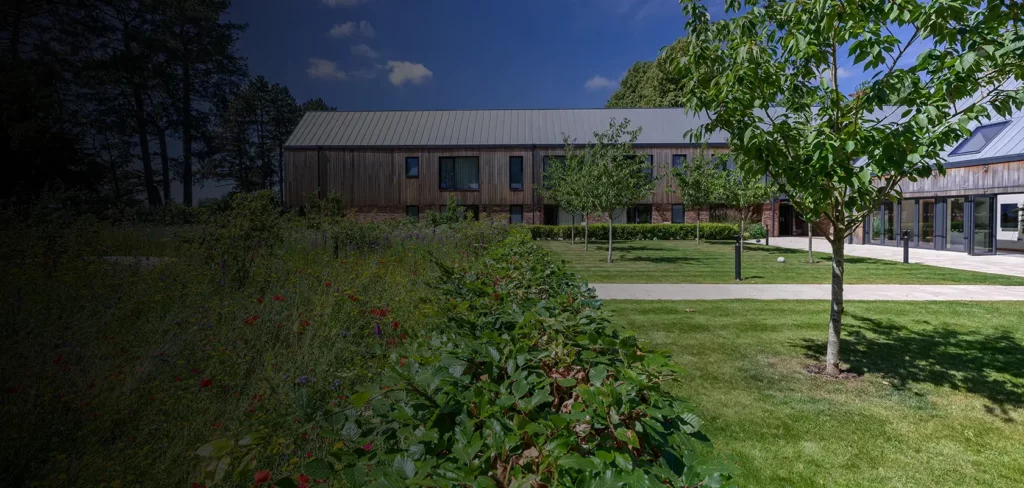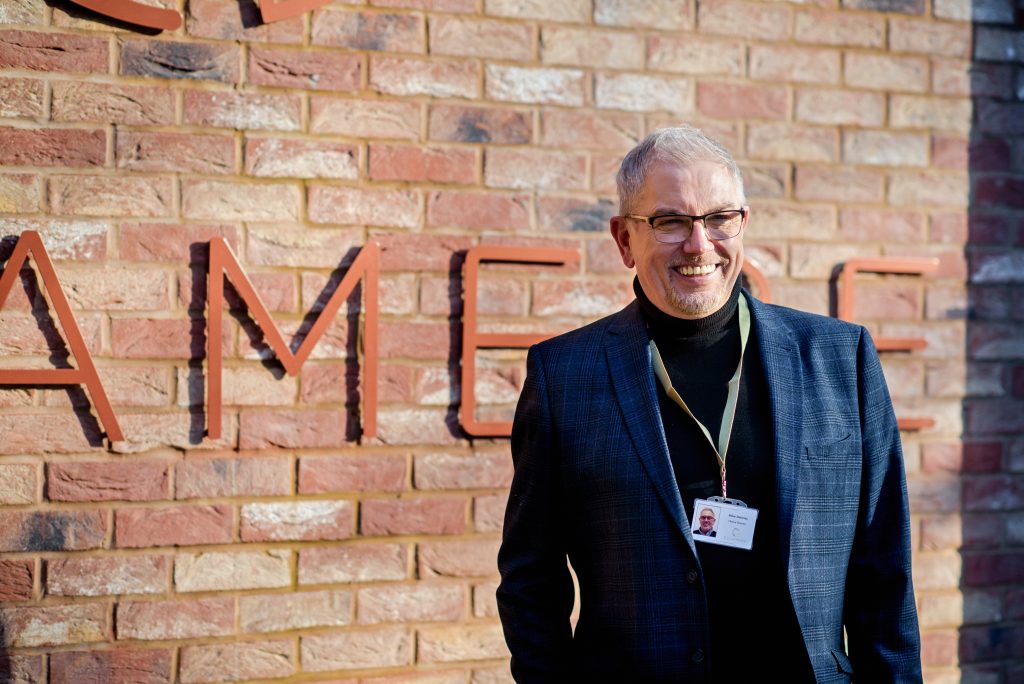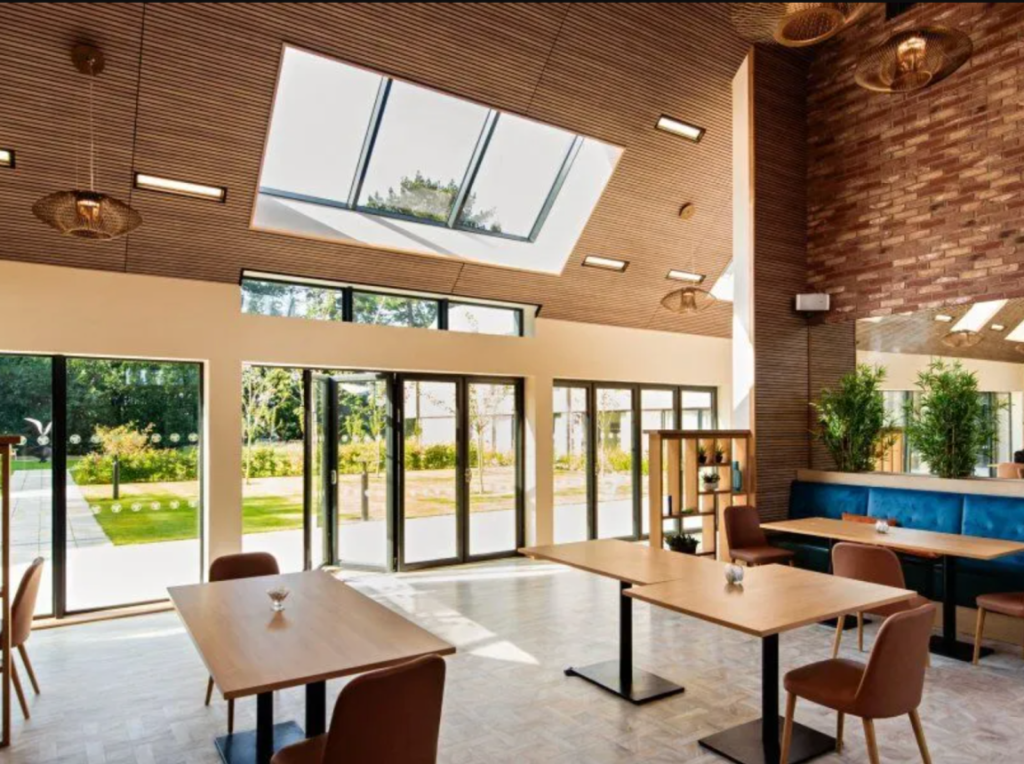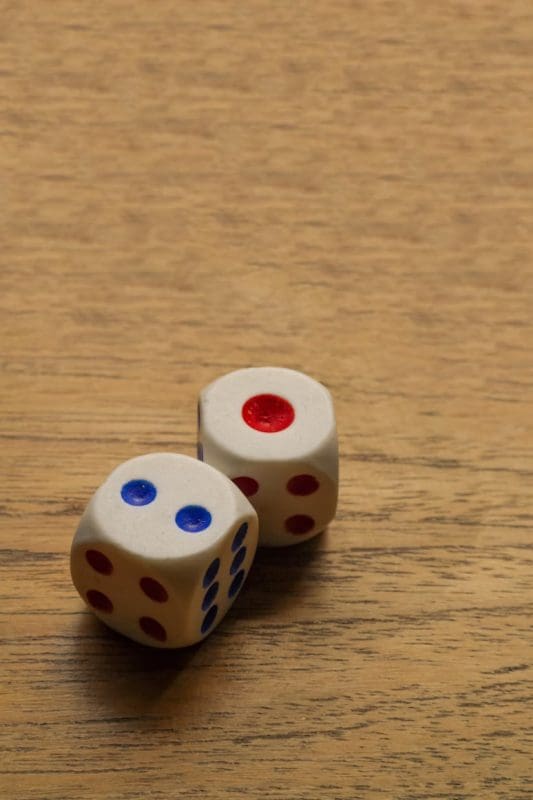“Delamere has ripped up the rehab rule book. We’re proud to have helped over 1,000 guests since we opened and we’re proving that anyone can recover with the right help.”
PTSD Rehab
Post-traumatic stress disorder (PTSD) develops after someone experiences a traumatic event, such as a car crash, serious assault, abuse, or health problem. Within our purpose-built residential rehab, Delamere offers private treatments for PTSD in restorative surroundings, fostering healing and profound transformations.


Delamere PTSD rehab centre
PTSD is an extremely debilitating condition, causing the sufferer to repeatedly play back the traumatic event through flashbacks and nightmares. However, it can be successfully treated.
At Delamere, our trauma-related treatment employs a combination of psychoactive medication to reduce hyperarousal and Cognitive Behavioural Therapy (CBT) to address disruptions in thought processes.
We also incorporate mindfulness and somatic healing techniques to help individuals develop coping mechanisms and combat triggers following therapy. Post-residential treatment, guests are invited to join a small peer group and work through our bespoke syllabus of twelve weekly modules to support the first 12 weeks. Delamere also provides 15 months of rehab aftercare on a weekly basis.
Trauma & addiction treatment at Delamere in Cheshire
“The help and the dedication from the staff was absolutely incredible.”
– Former Delamere Guest
View Our Treatment Model View our Environment Call now: 0330 111 2015
Why go to a PTSD rehab centre?
People who have suffered a traumatic event typically experience three types of symptoms:
- Replaying the event through flashbacks or nightmares
- Actively avoiding situations, people, or places that remind them of the event or becoming completely detached
- General hyperarousal, such as difficulty falling asleep or having violent outbursts.
In order to escape these terrifying feelings and negative emotions, many PTSD sufferers turn to drink and drugs. Combined PTSD and addiction is common. As well as alcohol addiction and drug addiction, PTSD has also been associated with eating disorders (EDs) and behavioural addictions, such as food addiction. At Delamere, we treat the symptoms of both PTSD and addiction concurrently to ensure the best chance of lasting recovery.
Many of the addictions we treat here at Delamere stem from trauma. Without treating the underlying trauma it’s impossible to treat the addiction. We help people suffering from dual diagnosis of PTSD and addiction to work through their problems with a combination of 1-1 counselling, group therapies, and somatic healing techniques.
Delamere uses trauma-focused CBT and group therapies to help guests talk about their traumatic experiences with others on similar journeys. This creates a safe, supportive environment for our guests to feel understood and to heal. Our purpose-built clinic set in rural Cheshire is the ideal environment to let go of past trauma and start rebuilding your life.


The Delamere approach to PTSD rehab
An inpatient stay at Delamere is a deliberately intensive 4-phase PTSD rehab treatment, one which we have crafted over time and has helped many participants recover. Our emphasis is on holistic therapy, treating the whole person rather than just the symptoms they present with.
Our approach at Delamere comprises 4 core phases: Stop, Start, Grow, & Bloom. Everything we offer at Delamere aims at effective and lasting outcomes in addiction treatment:
Let us help you today
Start your recovery journey by contacting us today.
Confidential. Straightforward. Friendly.
Frequently asked questions about PTSD rehab
In order to successfully recover from PTSD, medication as an aid to your PTSD treatment may be necessary. The first step of your PTSD rehab programme includes a full medical and mental health assessment carried out by our experienced team of medical professionals and psychotherapists. Following this, you may be prescribed a tailored medication programme to help support you. All medications will be issued at regular intervals by our 24-hour on-site nursing team who will continue to check on your physical and mental wellbeing throughout your entire stay with us.
For many suffering from PTSD, self-medicating with substances to escape past trauma is also an issue. This can cause a tolerance to develop which means unpleasant withdrawal symptoms when you stop. For this reason, it’s always important to start any treatment plan with a medical detox. Delamere has a multidisciplinary team of healthcare professionals who can help you withdraw safely and comfortably from whatever addictive substance with supplementary medication and nutritional support.
At Delamere, we provide personalised and holistic care that addresses the root cause of trauma and helps guests build techniques to cope and overcome it. As well as two 1-1 counselling sessions and two Recovery Mentoring sessions each week, and weekly trauma and group therapies, guests also take part in holistic therapies such as breathwork, yoga, equine therapy, grounding, and mindfulness, amongst many others.
Help and support for PTSD
-
Mental Health Treatment
Learn more about our approach to mental health rehab. Visit Mental Health Rehab
-
Behavioural Addiction Treatment
Learn about our approach to behavioural addiction. Visit Behavioural Addiction Treatment
Discover more advice on the Delamere blog
-
Is the UK experiencing a gambling addiction crisis?
Is the UK experiencing a gambling addiction crisis? New research by the University of shows young gamblers 4x likelier to attempt suicide.
-
The rise of shopping addiction in the UK
Since the pandemic shopping addiction has doubled; 10% of the population has a shopping addiction. Delamere looks into the signs & how to manage it.
-
Setting Boundaries with your Smartphone
Students will spend 25 years of their lives on their smartphones if current screen time habits continue. Delamere gives tip on how to set boundaries with your smartphone.
-
How digital detoxes can help to reconnect
People are struggling with social media, phone, and internet addiction. Discover how digital detoxes can help to unplug and reconnect.





















